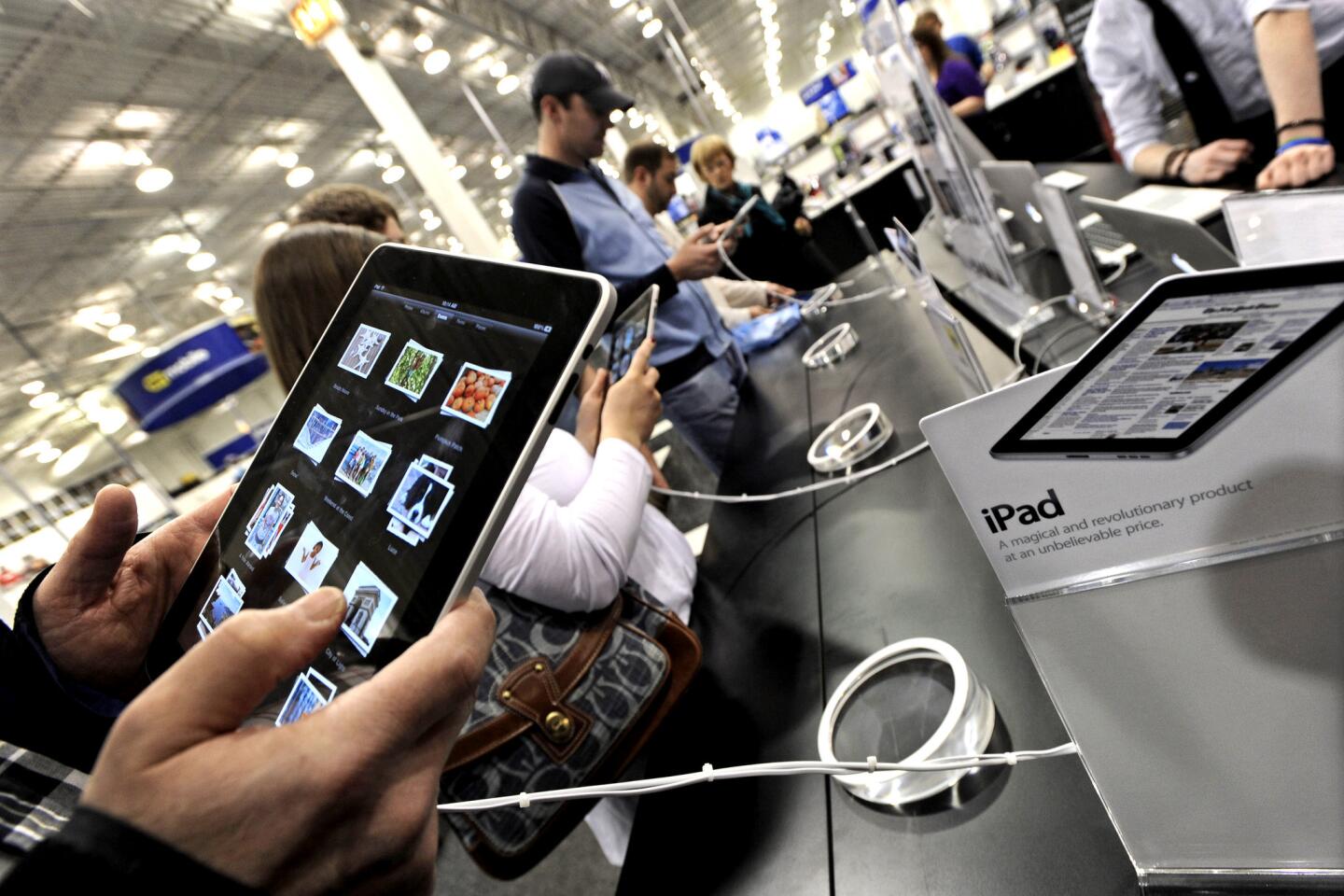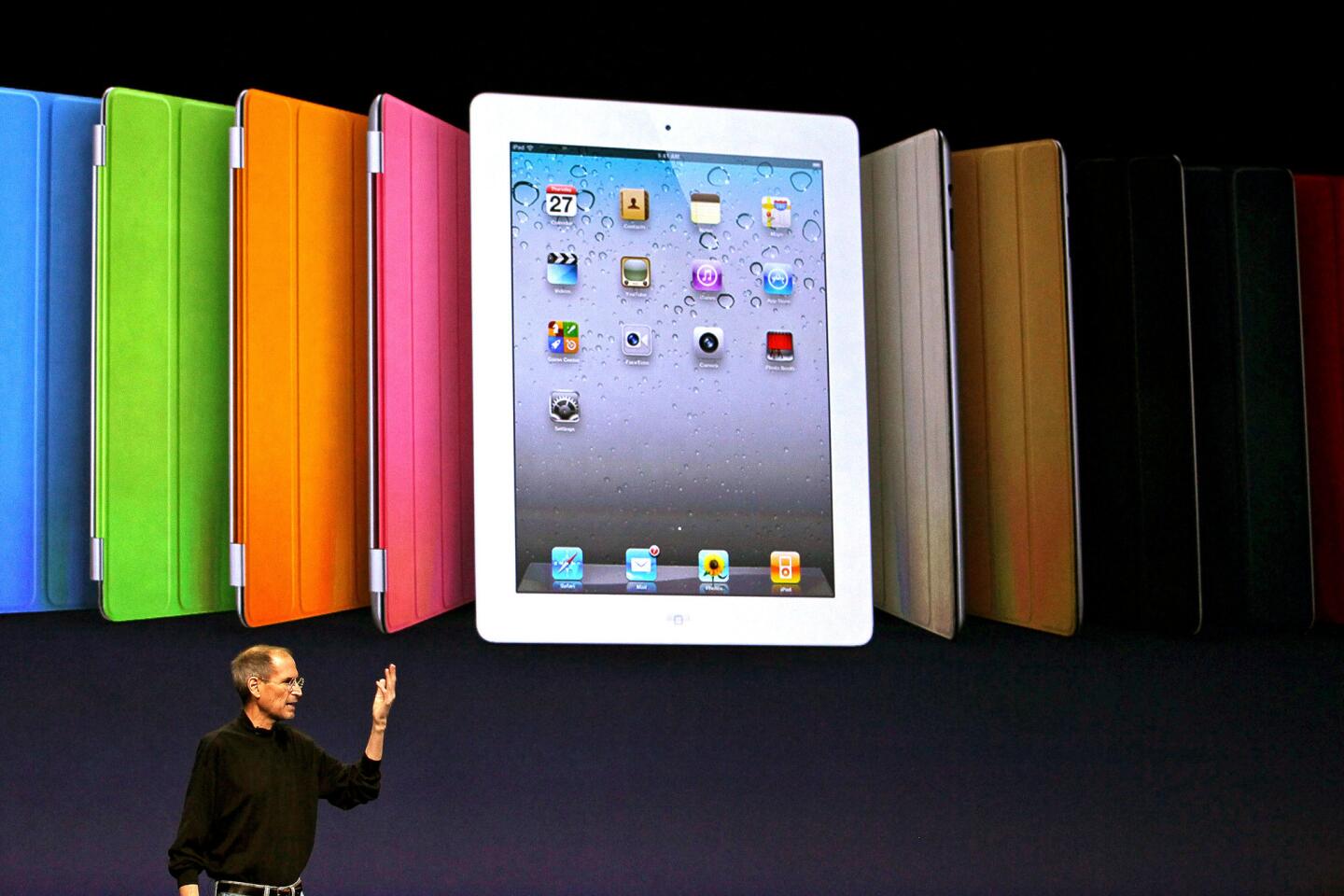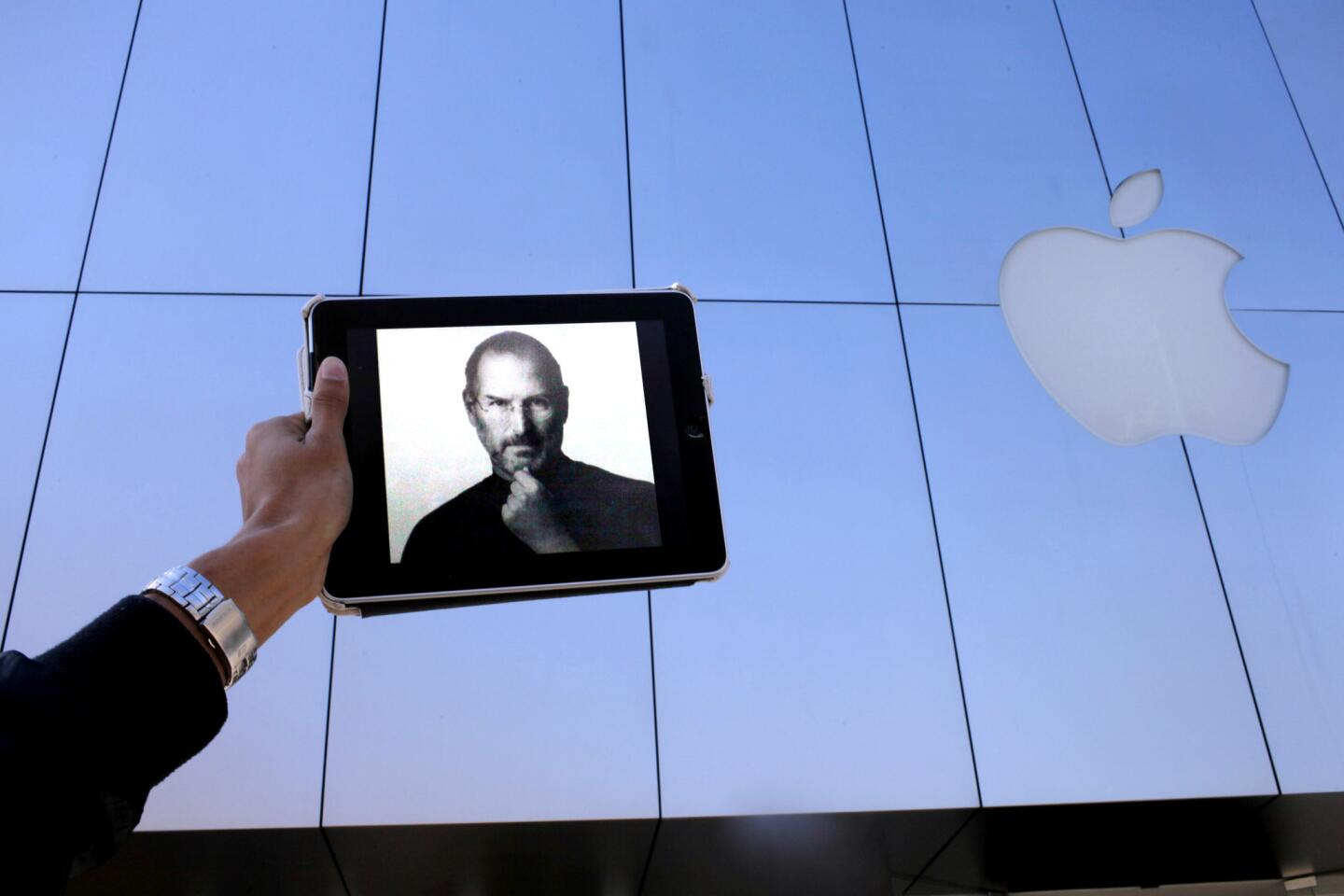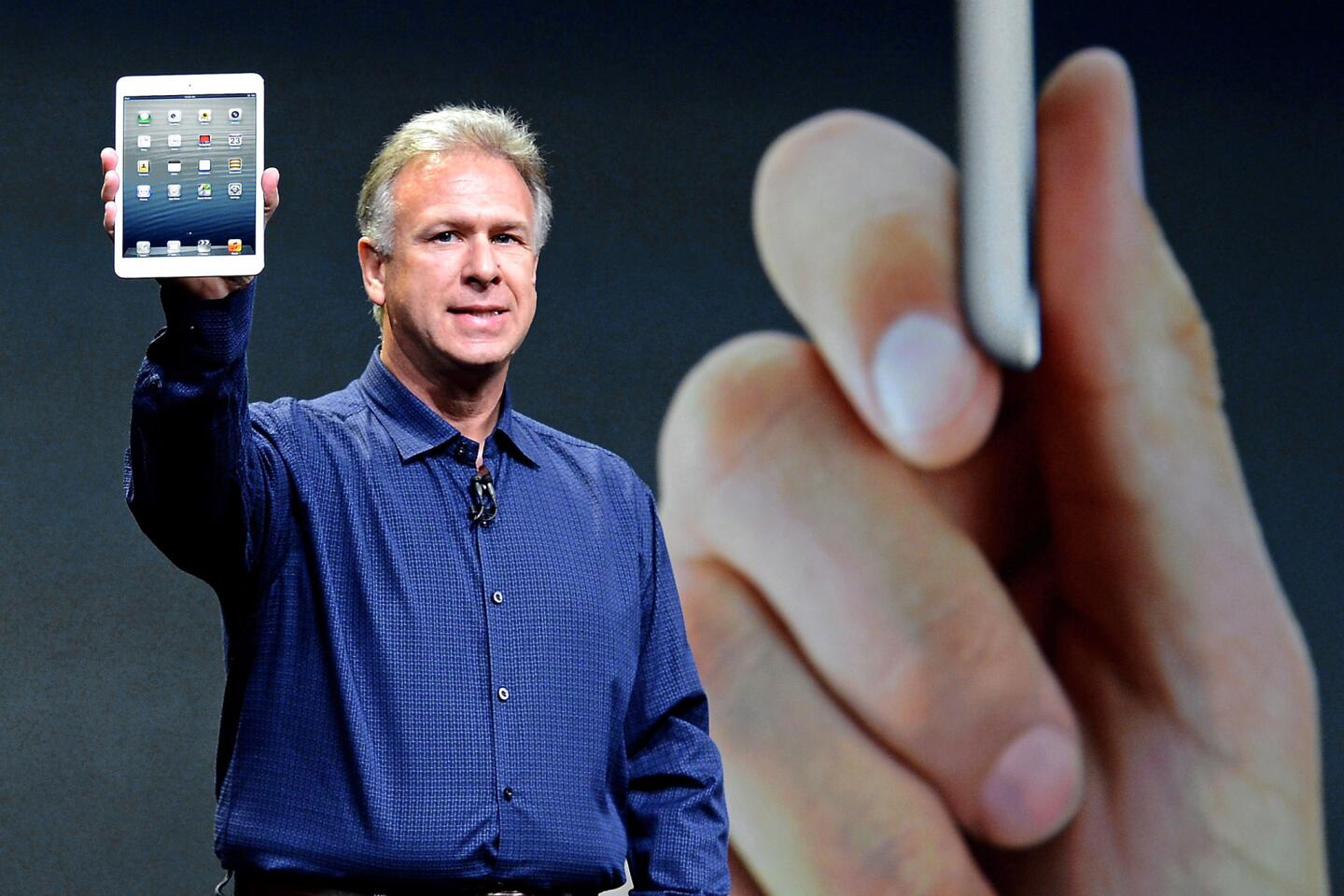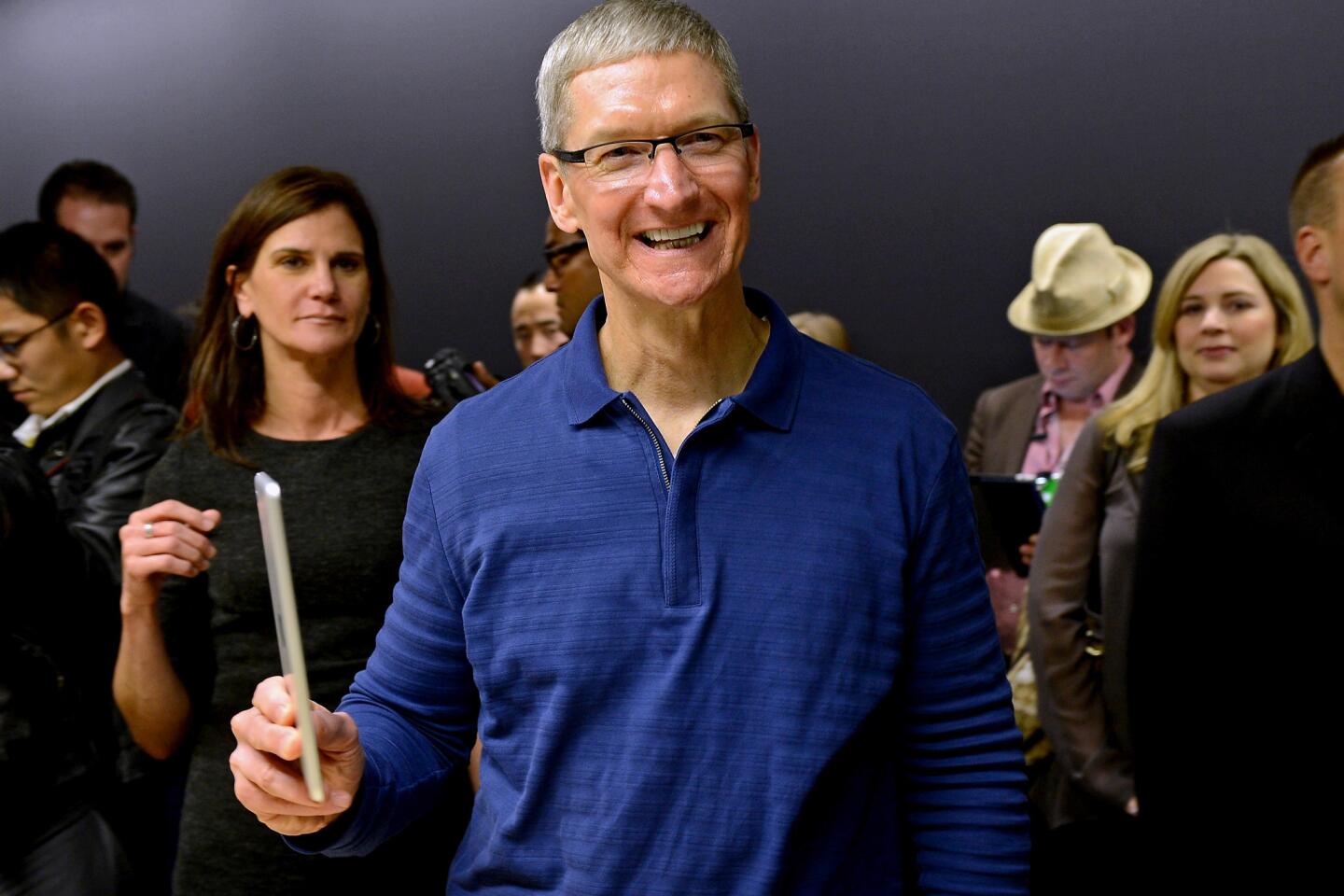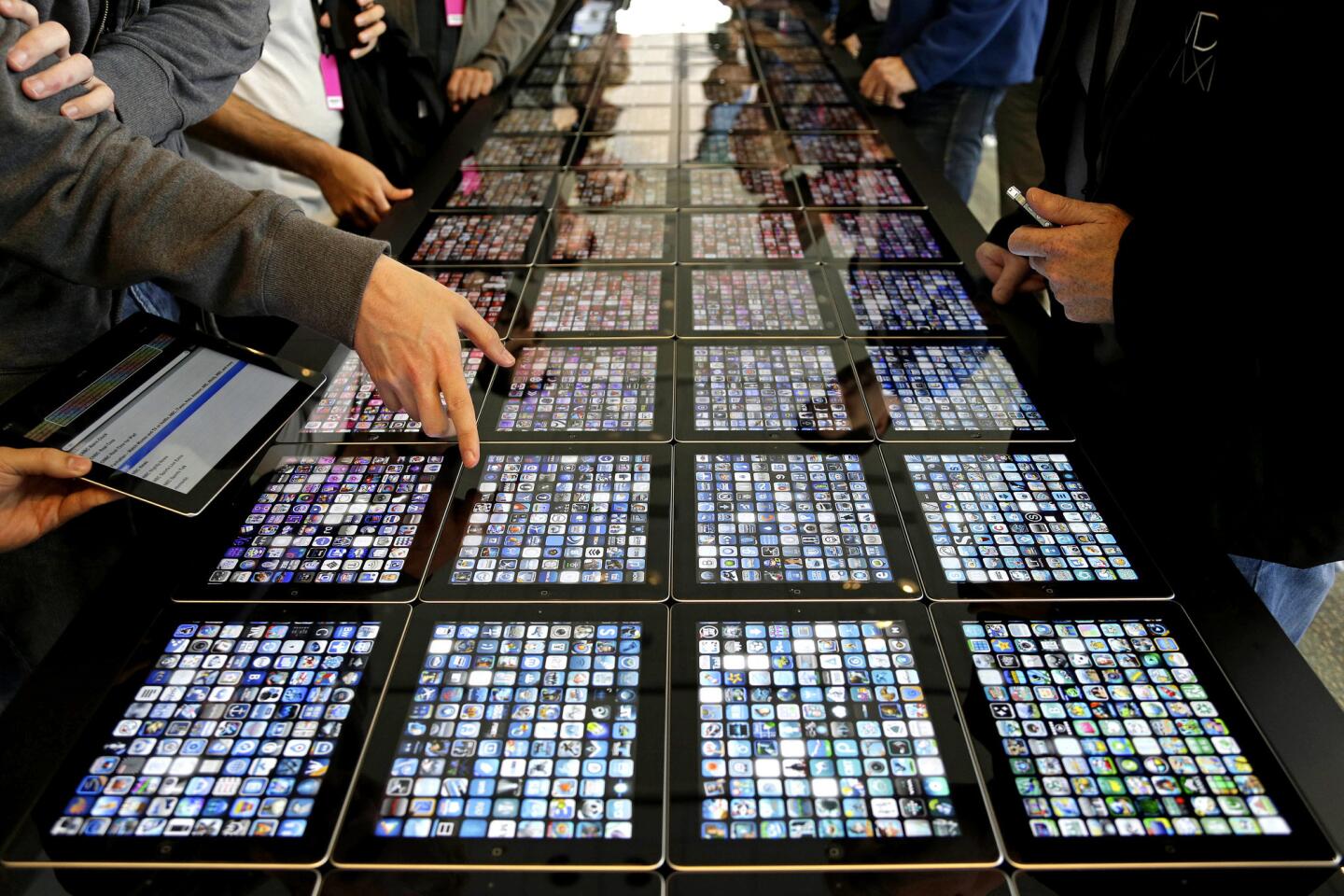Apple is making inroads in the business world
SAN FRANCISCO — With the tap of a finger, Christian Gastón Palmaz can use his iPad to remotely control one of the most sophisticated winemaking operations in Napa Valley.
The apps Palmaz and his information technology staff created for the iPad tablet enable them to monitor and adjust the temperature in large tanks lined with sensors to more precisely control fermentation. With the iPad at its heart, the system has replaced a labor-intensive process that required a winemaker to constantly draw and test samples and then manually adjust the temperature.
“All the time she’s doing that, she’s not tasting wine,” Palmaz said. “This gives the winemaker back 50% of her time.”
Although Palmaz Vineyards is a relatively small business, its enthusiastic embrace of iPads represents something much bigger taking place at Apple Inc.
The company long known for its focus on consumers and education is now using the iPad to sneak into the lucrative business market. Although overall use of tablets by businesses is small, the iPad has helped Apple stake out a commanding lead for mobile devices in business markets long dominated by PCs and laptops running Microsoft’s Windows.
“Apple has become the de-facto standard in a lot of commercial enterprises in terms of tablets,” said Tom Mainelli, an IDC research analyst. “It’s an interesting turn of events.”
On Tuesday, Apple is expected to unveil new versions of its iPad and iPad Mini at a media event in San Francisco. Such events tend to highlight how the devices are used by regular folks or students to read, watch videos or play games.
But there are signs that among consumers, there’s a bit of tablet fatigue. During the last quarter, sales of iPads declined to 14.6 million units from 19.4 million units the previous quarter and 17 million for the same quarter last year.
In part, the drop was because Apple has taken longer than usual to introduce new tablets. And sales of tablets overall showed declines last quarter.
Still, the iPad’s drop, coming after three years of astounding growth that upended the PC and laptop markets, was surprising enough for Barclays Capital analyst Ben Reitzes to declare in a note to clients, “IPad clearly has the flu.”
Many analysts are now projecting that the growth rate of iPads will slow and possibly plateau in the next few years.
How to kick-start that growth? For some analysts, the answer is to get more iPads into businesses.
“While Apple’s roots are in consumer and creative segments, we believe that the company may be well served by a greater focus on the corporate market in the future,” Reitzes recently wrote in a note to clients.
So far, the signs for Apple are promising.
Good Technology, which makes mobile security applications and tracks mobile device use by businesses, found that 72% of mobile devices activated by businesses ran on Apple’s iOS. Looking at just tablets, 90% were iPads, according to its study.
It’s an impressive lead for a company that just a few years ago barely had a pulse in the business world.
“We think we’re just at the beginning of this market,” said Lynn Lucas, Good Technology’s chief marketing officer. “The use of mobile in the enterprise is still very low.”
The iPhone got Apple’s foot in the door at many businesses that had been traditionally closed to them. Executives and average employees brought the iPhone for personal use but then insisted on using it at work, pressuring IT managers who were more comfortable with Windows to relent and make changes to support them.
That laid the groundwork for the iPad, which shares the same iOS mobile operating system. But the iPad’s larger display and touch interface has enabled it to perform a wider range of tasks in the workplace.
Curtis Kasefang, a senior consultant for Theatre Consultants Collaborative, which designs stages, said the iPad quickly became indispensable to the company, which operates virtually with no central office.
With its team of consultants spread around the country and traveling almost constantly, the firm relies on popular apps such as Evernote to take notes and share information. Its consultants also use a metronome app to measure sound system performance and an app that connects the cameras on an iPhone and iPad to take photos from multiple angles.
But best of all, in Kasefang’s view, is that the iPad frees consultants from having to carry hundreds of architectural and design drawings everywhere they go. The iPad’s screen is just big enough to provide a good view of these documents while still being lightweight.
“It gets kind of old when you’re dragging 45 pounds of drawings behind you,” said Kasefang, whose firm is just now designing its own customized apps for the iPad.
This highlights another area where Apple has built a remarkable lead.
According to the Good Technology report, 90% of custom tablet apps created by businesses for internal use or for their customers were written for the iPad.
Despite the early lead with business customers, Apple faces big challenges.
Although Microsoft plans to make a version of its Office applications for iOS, the lack of these applications has probably made some IT managers reluctant to embrace the device.
Apple has also been helped by poor sales of Windows 8 tablets, including Microsoft’s Surface.
But on Tuesday, Microsoft will launch Surface 2, and Nokia is unveiling its own slate of new tablets. Mainelli said that if Microsoft can offer a more competitive price and an improved design, it could be more competitive with business customers.
Apple isn’t publicly talking too much about its work with businesses. But on a recent earnings conference call, Apple executives revealed that 97% of Fortune 500 companies are either using or testing the iPad.
On its website, Apple features testimonials from businesses using the iPad. And the company has several job openings for people to sell to Fortune 1,000 companies, including one that says, “This position requires a Hunter approach to the territory.”
Otherwise, Reitzes described Apple’s efforts as “stealth.”
A lot of Apple’s customers are doing the spreading the word for them.
Peter Coffee, vice president and head of platform research at Salesforce.com, said tablets have transformed business meetings and sales pitches.
Coffee said the devices can display complex information in visually appealing ways. And the ability to pass it around creates an immediate connection with the customer.
As a result, Salesforce has also been encouraging its own customers to adopt tablets.
“You can hand a tablet to the customer, and they are immediately engaged with the product,” Coffee said. “The physical act of putting the tablet in the customers’ hands has resonated with many people as a much more effective way to get a conversation going.”
Twitter: @obrien

